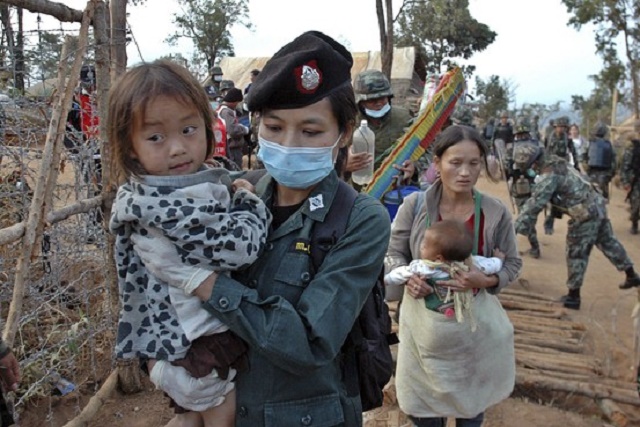During the Vietnam War, many Southern Vietnamese citizens sided with the United States in their fight against the Vietcong. Some of these citizens are still at risk of punishment for their actions. This has led to some such people going into hiding ever since the end of the Vietnam War, and many are still in hiding to this day. Their fear is that if they are found out, they may be tortured or even worse.
The United States provided arms to a number of those who were willing to aid their cause. Since the end of the conflict, the United States has helped between two and three hundred thousand refugees to relocate, but many refugees still live in fear of persecution in the event that their identities should be discovered. Even though the Vietnam War is long over, the Laotian government still considers some refugees of Hmong to be guilty of heinous crimes due to their collaboration with the United States in the fight against Vietnamese communism. In many cases, their view of the matter has been overblown to the point that such refugees are considered actual spies.
These refugees received a major blow in 2009, when Thailand decided they would no longer grant refuge to those from Hmong. In order to improve their relationship with Laos, they waged destruction on a number of camps housing refugees from the Vietnam War. A few thousand refugees were subsequently sent back to their native land, and are now doing their best to keep their heads down and stay anonymous in the eyes of Laotian authorities, the NBC News reports.
Due to the high level of suspicion with which these refugees are met, many fear that they are not capable of demanding basic rights. They fear that they will be jailed if they are found by Laotian authorities, and that their children cannot enter school, all because of the Vietnam War. Some of these refugees did not even contribute to the conflict themselves, but are rather afraid of being punished for the actions taken by their parents or other ancestors.
The Vietnam War was a complicated time in Vietnamese politics, and the fallout is still being experienced by many today. Refugees are supposed to be able to apply for asylum with the United Nations High Commission of Refugees, but some have had their cases turned down ever since Thailand changed their policies to appease Laos. The UNHCR in Bangkok has not been referring cases in the manner expected, and less than eighty cases have been taken since 2010. The UNHCR states that this is due simply to a lack of cases being brought to their attention. Either way, many refugees are fearful that the actions taken by themselves or their ancestors during the Vietnam War may continue to negatively impact their lives.
